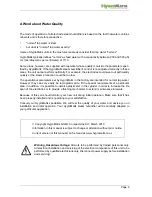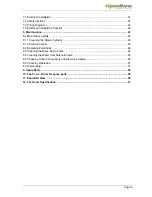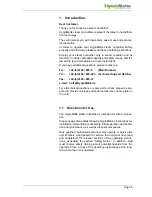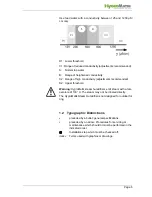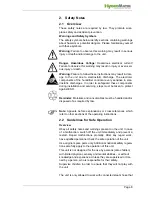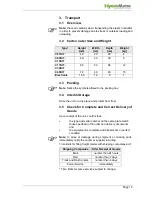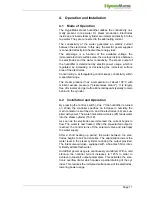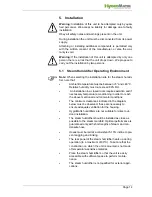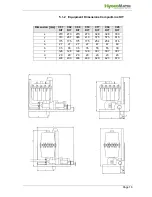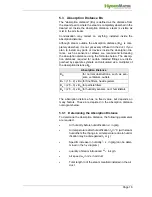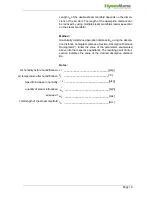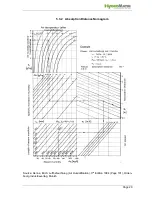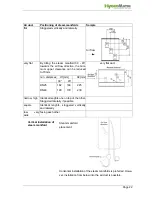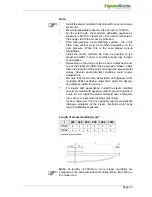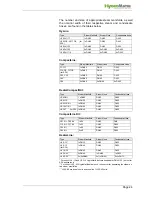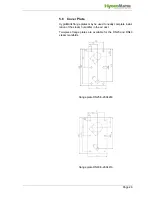
Page 11
4.
Operation and Installation
4.1
Mode of Operation
The HygroMatik steam humidifier utilizes the conductivity nor-
mally present in tap water for steam production. Electrodes
inside an enclosed steam cylinder are immersed directly into the
tap water. They are connected to the alternating current.
The conductivity of the water generates an electric current
between the electrodes. In this way, the electric power supplied
is converted directly into heat without energy loss.
The amperage is a function of the available voltage, the
immersed electrode surface area, the average distance between
the electrodes and the water conductivity. The steam output of
the humidifier is determined by electric power usage, which is
regulated by increasing or decreasing the immersed surface
area of the electrodes.
Concurrently, a self-regulating control keeps conductivity within
a specified range.
The steam produced has a temperature of about 100°C with
minimal excess pressure ("pressureless steam"). It is largely
free of minerals and germ-free. Mineral deposits typically remain
behind in the cylinder.
4.2
Installation and Operation
By pressing the control switch („Pos. I”) the humidifier is turned
on. When the controller specifies an increase in humidity, the
main contactor is switched on and the electrodes (48) are sup-
plied with power. The water inlet solenoid valve (25) feeds water
into the steam cylinder (16+19).
As soon as the electrodes are immersed, the current begins to
flow. The water is now heated. When the pre-selected output is
reached, the control turns off the solenoid valve and interrupts
the water supply.
After a short heating up period, the water between the elec-
trodes begins to boil and vaporize. The vaporization lowers the
water level in the steam cylinder, reducing the output provided.
The inlet solenoid valve, equipped with a fine mesh filter, inter-
mittently admits fresh water.
Humidifier power usage is continuously monitored. With a cold
start-up, the nominal current increases to 125% in order to
achieve quick-start output parameters. This activates the elec-
tronic overflow limiter which causes a partial draining of the cyl-
inder. This reduces the immersed surface area of the electrodes,
lowering power usage.


